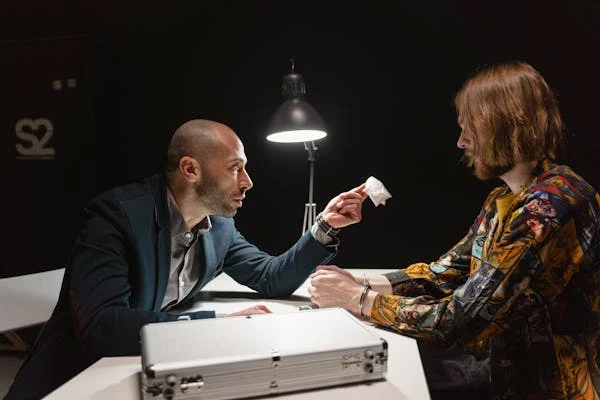Addiction is a complex and chronic condition that affects millions of people worldwide. Whether it involves substance abuse or behavioral dependencies, overcoming addiction requires a comprehensive and structured approach. Long-term recovery is not just about quitting the substance or behavior; it involves addressing the underlying causes, developing coping mechanisms, and maintaining a lifestyle that supports sobriety. This article explores the most effective addiction treatment methods, emphasizing those that have been proven to foster long-term recovery.

Medical Detoxification
Medical detoxification is often the initial stage in addiction treatment. This process helps individuals safely withdraw from substances under medical supervision, reducing the risks of severe withdrawal symptoms. Detoxification alone, however, is not enough for long-term recovery. It serves as a preparatory phase, allowing individuals to move into deeper therapeutic interventions once their bodies are free from the immediate effects of drugs or alcohol. Medications such as methadone, buprenorphine, and naltrexone may be used to ease withdrawal symptoms and prevent relapse, particularly in opioid addiction.
Residential Rehabilitation
Residential rehabilitation provides individuals struggling with addiction with a safe and structured environment to focus entirely on healing. These programs typically last 30 to 90 days and offer a combination of medical care, therapy, and peer support. One key benefit is the personalized care at Elevate Recovery Center, where treatment plans are tailored to address each person’s unique needs and challenges. By removing external triggers and offering 24/7 support, residential rehab helps individuals develop healthy coping mechanisms and long-term strategies for sobriety. The immersive nature of these programs significantly increases the chances of lasting recovery compared to outpatient care.
Behavioral Therapies
Behavioral therapies play a crucial role in addiction treatment by addressing the psychological and emotional aspects of substance abuse. Cognitive-behavioral therapy (CBT) is one of the most effective approaches, helping individuals recognize and change negative thought patterns that contribute to addiction. Dialectical behavior therapy (DBT) is also beneficial, particularly for individuals with co-occurring mental health disorders. Other behavioral approaches, such as contingency management and motivational interviewing, encourage positive behavioral changes and enhance an individual’s motivation to stay in recovery.
Medication-Assisted Treatment (MAT)
Medication-assisted treatment (MAT) combines FDA-approved medications with behavioral therapies to treat substance use disorders, especially opioid and alcohol addiction. Medications such as methadone, buprenorphine, and naltrexone help reduce cravings and withdrawal symptoms, making it easier for individuals to focus on their recovery journey. MAT has been shown to significantly decrease relapse rates and improve treatment retention. While some critics argue that MAT replaces one substance with another, research indicates that it is a highly effective, evidence-based approach when used properly.
Outpatient Programs
Outpatient treatment programs offer a flexible approach for individuals who cannot commit to inpatient rehab due to work, school, or family obligations. These programs vary in intensity, ranging from partial hospitalization programs (PHPs) to intensive outpatient programs (IOPs) and standard outpatient care. Outpatient treatment allows individuals to receive therapy, medication management, and peer support while maintaining their daily responsibilities. It is particularly beneficial for those transitioning from inpatient rehab or those with mild to moderate addiction. This structured yet adaptable approach ensures individuals receive essential support while integrating recovery into their everyday lives.
12-Step Programs and Peer Support Groups
12-step programs, such as Alcoholics Anonymous (AA) and Narcotics Anonymous (NA), have been instrumental in helping individuals achieve and maintain sobriety. These programs emphasize personal accountability, spiritual growth, and peer support. While not everyone follows the spiritual aspects of 12-step programs, the structure and sense of community they provide are invaluable. Other peer support groups, such as SMART Recovery, offer alternative approaches that focus on self-empowerment and evidence-based techniques. Engaging with a supportive community reduces feelings of isolation and reinforces long-term recovery.
Holistic and Complementary Therapies
Holistic and complementary therapies have gained popularity as part of a comprehensive addiction treatment plan. Activities such as yoga, meditation, acupuncture, and art therapy help individuals manage stress, improve emotional regulation, and enhance overall well-being. Exercise and nutrition also play a crucial role in healing the body and mind. While these therapies should not replace traditional treatment methods, they serve as valuable supplements that support a balanced and healthy recovery.
Dual Diagnosis Treatment
Many individuals struggling with addiction also experience co-occurring mental health disorders such as depression, anxiety, or PTSD. Dual diagnosis treatment focuses on addressing both addiction and underlying mental health conditions simultaneously, ensuring a more effective and lasting recovery. Integrated treatment approaches, which combine therapy, medication, and holistic care, help individuals develop the tools needed to manage both conditions without relying on substances as a coping mechanism. By treating the root causes of addiction, dual diagnosis programs improve long-term outcomes and provide individuals with healthier strategies for managing stress and emotional challenges.
Family Involvement and Therapy
Addiction affects not only the individual but also their loved ones, making family involvement a crucial component of the recovery process. Family therapy addresses relationship dynamics, improves communication, and fosters a supportive home environment. Educating family members about addiction reduces stigma and misunderstandings, enabling them to provide meaningful support throughout the recovery journey. When families actively participate in therapy, individuals in recovery experience higher success rates in maintaining long-term sobriety. By healing relationships and building a foundation of trust, family involvement plays a vital role in sustaining recovery and preventing relapse.
Aftercare and Relapse Prevention
Recovery does not end after completing a treatment program; it is a lifelong journey that requires continuous effort and support. Aftercare programs, such as sober living homes, alumni groups, and continued therapy, help individuals stay accountable and connected to their recovery community. Developing a relapse prevention plan, identifying triggers, and having a reliable support system in place are essential for maintaining sobriety. Regular engagement with counseling, peer support networks, and healthy lifestyle choices significantly reduce the risk of relapse. By prioritizing aftercare, individuals strengthen their long-term commitment to a substance-free life.

Effective addiction treatment is multifaceted and personalized, addressing both the physical and psychological aspects of addiction. From medical detox and behavioral therapies to peer support and holistic approaches, each method plays a vital role in fostering long-term recovery. By embracing a comprehensive treatment plan and staying committed to a recovery-oriented lifestyle, individuals can overcome addiction and build a healthier, more fulfilling future. If you or a loved one is struggling with addiction, seeking professional help is the first step toward lasting recovery.





